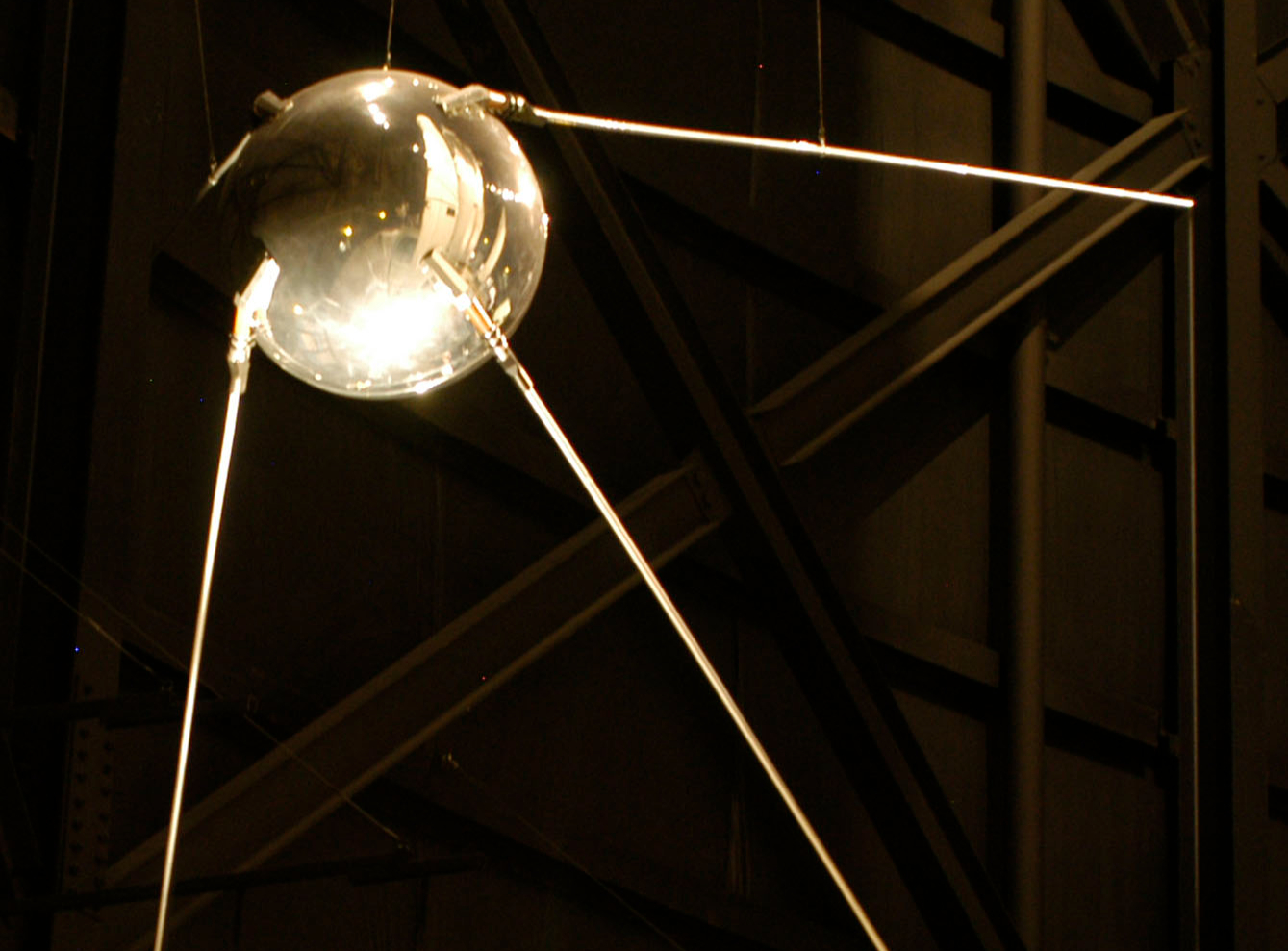Civilization
The New Space Race

In 1957, the Soviet Union launched the Sputnik satellite into orbit and set off a decades-long space race rivalry with the U.S. It was a pivotal moment that galvanized America into action, spurring innovation and accelerating the development of our capabilities in space. In the end, our rigorous efforts paid off and America was the first to put a man on the moon in 1969. The triggering “Sputnik moment” was a wake-up call that brought about a course correction, and the U.S. eventually gaining, and maintaining, the lead in space.
The new space race – against China …
Years later, we are at another crossroads facing an even more complex and turbulent global landscape. Amidst this backdrop, China, our most formidable adversary, is speeding ahead in its quest to become a military, economic, and technological superpower, capable of challenging democracy around the world. The Chinese Communist Party’s (CCP) has clearly made dominance in space a universal imperative with significant advancements in space-based technology. As it was in 1957, this should be a warning call to all those concerned about America’s national security.
The CCP has invested substantial resources in expanding its space program and has rapidly gained comparative and even competitive advantage over the U.S. In the Pentagon’s 2023 China Military Power Report, Chinese ambitions in space are vividly highlighted including the CCP technology built for “battles in orbit” which include anti-satellite missiles, attack satellites, and potentially even space-based nuclear weapons. It makes it clear that Chinese objectives in space are closely tied to boosting military capabilities. A prime example is that China has also implemented geostationary orbit (GSO) satellite technology, which gives them the capacity for “live” surveillance. The U.S. does not currently employ GSO technology for this kind of surveillance, putting U.S. national security at a severe disadvantage.
… and North Korea
The CCP is not alone in its ambitions. North Korea launched a spy satellite in 2023 and recently reaffirmed its plans to launch multiple reconnaissance satellites into orbit this year. A recent study reports that countries like China, North Korea, Iran, India, and Japan over the past year have reached milestones in space, with record-setting launches, satellite deployments and lunar missions. The competition in space capabilities is growing and intensifying.
With increasing global risks and the persistent threat of domestic terrorism from adversaries like Iran, we must consider space as a critical battleground. The U.S. economy is highly dependent on U.S. space assets, which must be protected. Everything from banking to cell phones relies on the U.S. GPS satellite constellation, making it an integral part of our national critical infrastructure. From bridges to power grids, nuclear plants, refineries, and pipelines, numerous infrastructure assets rely on precision timing for synchronization and thus rely on satellites. These assets must be safeguarded for our national security and economic viability. The destruction of anyone or even multiple of these assets, like the recent bridge collapse in Baltimore, could spell disaster.
Commercial satellite operators
Commercial operators of satellite technology are an essential part of our infrastructure and our defense capabilities. To remain competitive and achieve leadership in space, the U.S. government must accelerate its partnership efforts to fully integrate private-sector innovators in its supply chains, diversifying provider options to deliver groundbreaking technology that accelerates our space capabilities. This perspective is in alignment with government officials who have sounded the alarm over China’s current advantage and voiced support for expanding the number of commercial providers and increasing the number of solutions to enhance our resilience in space.
Looking to the future of space infrastructure and America’s national security, optimized solutions will be key. Recently, the U.S. government awarded a $1.8 billion contract to build a network of hundreds of low earth orbit (LEO) spy satellites. While increasing our capabilities in space is the right decision, this approach has its limitations. LEO satellites are far more vulnerable to attack from the weapons of the CCP, and far more are required to achieve the goal of “live” surveillance. In comparison, geostationary satellites (GSO) are less exposed to attack risk because of their orbit height. Both Russia and China have GSO satellites in orbit, likely on espionage missions. Orbiting in lockstep with the Earth’s rotation allows only a few GSO satellites to do the job of many hundreds of LEOs, achieving the “unblinking eye in the sky” technology we so desperately need to make a priority—China has shown that they already are taking it seriously.
Not doing enough to win the space race
We know what’s at stake. It is clear what the U.S. is currently doing is not enough. Much like we did historically, we need to redouble our efforts to meet the vast national security challenges that we are facing. It starts with learning from the past and making the necessary investments now to ensure that we will again come out on top in this new space race.
This article was originally published by RealClearDefense and made available via RealClearWire.
Chad Wolf is the former Acting Secretary of the U.S. Department of Homeland Security.
-

 Accountability2 days ago
Accountability2 days agoWaste of the Day: Principal Bought Lobster with School Funds
-

 Constitution2 days ago
Constitution2 days agoTrump, Canada, and the Constitutional Problem Beneath the Bridge
-

 Executive17 hours ago
Executive17 hours agoHow Relaxed COVID-Era Rules Fueled Minnesota’s Biggest Scam
-

 Civilization16 hours ago
Civilization16 hours agoThe End of Purple States and Competitive Districts
-

 Civilization4 days ago
Civilization4 days agoThe devil is in the details
-

 Executive4 days ago
Executive4 days agoTwo New Books Bash Covid Failures
-

 Civilization3 days ago
Civilization3 days agoThe Conundrum of President Donald J. Trump
-

 Executive4 days ago
Executive4 days agoThe Israeli Lesson Democrats Ignore at Their Peril








